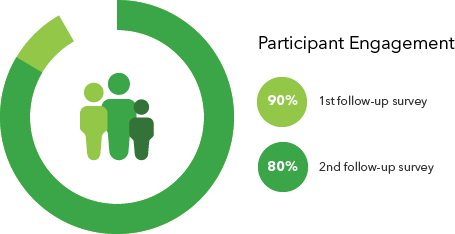The fertility rate in the United States is at its lowest point in more than a century, according to new data released this summer from the National Center for Health Statistics.
The numbers are a testament to women delaying having children while they enter the workforce. But, according to researchers, the data also point to a need for new efforts to better understand improving fertility outcomes in women who wait to have their children.
Early this year 23andMe launched its Fertility Research Community with Celmatix, a next-generation women’s health company, to use genetics and other data to uncover what impacts women’s ability to conceive. It focuses on women aged 18 to 45, who are actively trying to conceive or who recently had a child.

In an indication of the interest around this issue, the study was able to enroll 4,500 women in a matter of a few days. This kind of recruitment can typically take years to complete, and the speed of this illustrates how important this issue is for many women.
As the research has begun in earnest, it’s clear that the interest from participants is holding. All those enrolled completed an essential background survey, sharing health and lifestyle information. Close to 90 percent completed the first follow up survey with researchers and about 80 percent completed the second.
As the study progresses over the next year, participants will continue to receive emails every two months with reminders to complete follow-up surveys.
At the end of this process, our scientists will combine the information contributed by participants with genetic data and the outcome of the women’s efforts to conceive. The hope is that the research will uncover new insights into what impacts a woman’s fertility and her ability to deliver a healthy baby.
23andMe’s research model has already proven useful in fueling valuable insights into other conditions and we hope to do the same for this community.




